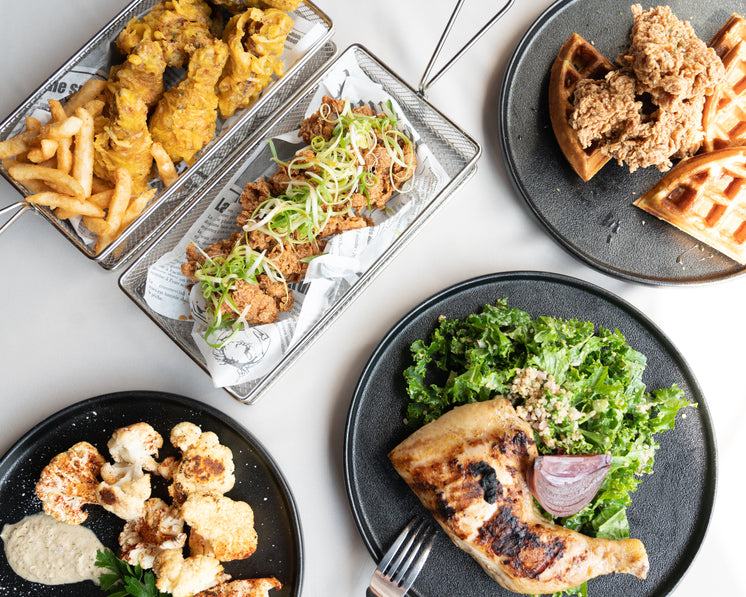
Chicken Road 365
Thêm một bài đánh giá Theo dõiTổng quan
-
Ngày thành lập 20 Tháng 10, 1912
-
Các ngành Công nghệ thực phẩm
-
Công việc đã Đăng 0
-
Đã xem 6
Mô tả công ty
Chicken Road: A High-Stakes Gamble Where Nerves of Steel Meet Cold, Hard Cash
Chicken Road: A High-Stakes Gamble Where Nerves of Steel Meet Cold, Hard Cash
Chicken Road, a variant of poker that blends elements of Texas Hold’em with the high-stakes tension of a dare, is a game that appeals to players who crave not only strategic gameplay but also the adrenaline rush of pushing their limits. While not as widely known as its more conventional cousins, Chicken Road offers a unique and potentially lucrative experience for those brave enough to try it. This article delves into the intricacies of Chicken Road, exploring its rules, strategies, variations, and the psychological aspects that make it such a compelling and potentially dangerous game.
This article delves into the intricacies of Chicken Road, exploring its rules, strategies, variations, and the psychological aspects that make it such a compelling and potentially dangerous game.
The Core Mechanics of Chicken Road
Chicken Road retains many of the fundamental elements of Texas Hold’em. Players receive hole cards, a community board is dealt, and betting rounds ensue. However, the crucial distinction lies in the “Road” itself, which introduces a novel element of risk and reward. The Road consists of a series of predetermined betting intervals, typically after each community card (flop, turn, river). At each interval, players have the option to “continue down the road” by placing a pre-agreed bet, or “chicken out” by folding. The stakes increase as players progress further down the road, meaning the potential payoff for staying in the game grows exponentially, but so does the cost of being outdrawn.
Players receive hole cards, a community board is dealt, and betting rounds ensue. However, the crucial distinction lies in the “Road” itself, which introduces a novel element of risk and reward. The Road consists of a series of predetermined betting intervals, typically after each community card (flop, turn, river). At each interval, players have the option to “continue down the road” by placing a pre-agreed bet, or “chicken out” by folding. The stakes increase as players progress further down the road, meaning the potential payoff for staying in the game grows exponentially, but so does the cost of being outdrawn.
This escalating risk-reward dynamic is the heart of Chicken Road. It forces players to constantly re-evaluate their hand strength, pot odds, and opponent tendencies. More importantly, it introduces a psychological element of bluffing and intimidation that extends beyond the cards themselves. A player who appears confident and willing to continue down the road may force weaker hands to fold, even if their own hand is not particularly strong. Conversely, a player who shows signs of hesitation may be exploited by more aggressive opponents.
Here’s a basic breakdown of the game flow:
- Ante/Blinds: Like in Texas Hold’em, antes or blinds are used to initiate the betting.
- Hole Cards: Each player receives two private cards (hole cards).
- Initial Betting Round: A betting round occurs after the hole cards are dealt.
- The Flop: Three community cards are dealt face-up in the center of the table.
- First Road Bet: Players can choose to “continue down the road” by placing a pre-determined bet or “chicken out” by folding. The bet size typically increases with each subsequent road bet.
- The Turn: A fourth community card is dealt face-up.
- Second Road Bet: Another round of road betting occurs, with the bet size increasing again.
- The River: The fifth and final community card is dealt face-up.
- Final Road Bet: The last opportunity to continue down the road.
- Showdown: If more than one player remains, they reveal their hole cards, and the player with the best five-card hand wins the pot.
Strategic Considerations in Chicken Road
Mastering Chicken Road requires a nuanced understanding of poker fundamentals combined with a keen awareness of the psychological dynamics at play. Here are some key strategic considerations:
Hand Selection
Starting hand selection is crucial in any form of poker, but it’s particularly important in Chicken Road due to the escalating stakes. Players should prioritize strong starting hands that have the potential to improve significantly on the flop. Suited connectors and high-ranking pairs are generally good choices. Speculative hands, such as small pocket pairs or suited aces, can also be profitable if played cautiously, especially in early position. However, weak or marginal hands should be folded pre-flop to avoid being forced into difficult decisions later on.
Suited connectors and high-ranking pairs are generally good choices. Speculative hands, such as small pocket pairs or suited aces, can also be profitable if played cautiously, especially in early position. However, weak or marginal hands should be folded pre-flop to avoid being forced into difficult decisions later on.
Position
Position is a significant advantage in Chicken Road, as it allows players to observe their opponents’ actions before making their own decisions. Players in late position can gather more information about the strength of their opponents’ hands and adjust their betting strategy accordingly. They can also control the size of the pot and manipulate the betting to their advantage. Players in early position should generally play tighter and more conservatively, as they lack the information advantage of their opponents.
Bankroll Management
Due to the escalating stakes, Chicken Road can be a volatile game. It’s essential to practice sound bankroll management to avoid going broke. Players should only play with money they can afford to lose and should set strict limits on their losses. It’s also advisable to start with lower stakes games to gain experience and develop a winning strategy before moving up to higher stakes. Conservative bankroll management is crucial for long-term success in Chicken Road.
Bluffing and Intimidation
Bluffing is an integral part of poker, and it’s even more important in Chicken Road. The escalating stakes create opportunities for players to bluff their opponents into folding, even when they have a strong hand. Players can use a variety of techniques to bluff, such as making large bets or raises, acting confidently, or displaying signs of nervousness to induce a false read. However, it’s important to be selective about when to bluff, as frequent or obvious bluffs can be easily detected by experienced opponents.
Intimidation is another psychological tactic that can be used to gain an advantage in Chicken Road. Players can use their body language, tone of voice, or betting patterns to intimidate their opponents into folding. Aggressive and confident players often have an easier time intimidating their opponents than timid or passive players. However, it’s important to avoid crossing the line into unethical or abusive behavior, as this can result in penalties or ejection from the game.
Reading Opponents
The ability to read opponents is essential for success in Chicken Road. Players should pay close attention to their opponents’ betting patterns, body language, and facial expressions to gather clues about the strength of their hands. They should also try to identify their opponents’ tendencies, such as whether they tend to bluff frequently or play more conservatively. By carefully observing their opponents, players can make more informed decisions about when to bet, raise, or fold.
Variations of Chicken Road
While the core mechanics of Chicken Road remain consistent, several variations exist, often altering the number of road betting rounds, the size of the escalating bets, or even introducing side bets. Some common variations include:
- Short Road: This variation features fewer road betting rounds, typically only one or two, which accelerates the action and increases the volatility of the game.
- High-Low Chicken Road: This variation combines Chicken Road with high-low split poker. The pot is split between the highest and lowest hands, adding another layer of complexity to the game.
- Progressive Chicken Road: In this variation, the bet sizes increase more aggressively with each road betting round, creating even higher stakes and more intense psychological pressure.
- Community Card Chicken Road: Players receive a set of community cards and must discard some to make the best hands with hole cards, which is a variation that allows for more strategy in terms of what cards to discard to throw off the opponents.
The specific rules of each variation should be clearly defined before the game begins to avoid any confusion or disputes.
The Psychology of Chicken Road
Chicken Road is as much a psychological game as it is a strategic one. The escalating stakes and the constant threat of being outdrawn can put immense pressure on players, testing their nerves and forcing them to make difficult decisions under duress.
Fear of Loss
The fear of losing money is a powerful motivator in any form of gambling, but it’s particularly acute in Chicken Road. The escalating stakes mean that players stand to lose significant sums of money if they stay in the game too long and are ultimately outdrawn. This fear can lead players to make irrational decisions, such as folding strong hands or calling with weak hands.
Ego and Pride
Ego and pride can also play a significant role in Chicken Road. Players may be reluctant to “chicken out” and fold, even when they know they are likely to lose, because they don’t want to appear weak or afraid. This can lead them to make overly aggressive bets or calls, ultimately costing them more money.
Tilt
Tilt is a state of emotional distress that can impair a player reviews (chicken-road-365.com)’s judgment and lead to poor decision-making. It can be triggered by a variety of factors, such as losing a big pot, being bluffed, or feeling frustrated with one’s own play. Players who are on tilt are more likely to make impulsive bets, chase losses, and play recklessly. It’s important for players to recognize the signs of tilt and take a break from the game if they feel their emotions are starting to affect their play.
Managing Emotions
Successful Chicken Road players are able to control their emotions and make rational decisions, even under pressure. They understand that losing is part of the game and don’t let it affect their confidence or their strategy. They also know when to fold and when to bluff, and they are not afraid to back down when they are beaten. Emotional intelligence is a key attribute for long-term success in Chicken Road.
The Future of Chicken Road
While Chicken Road may not reach the mainstream popularity of Texas Hold’em or Omaha, its unique blend of strategy, risk, and psychology ensures its continued appeal to a niche group of players. With the rise of online poker and the increasing availability of different game formats, Chicken Road may find a wider audience in the future. Whether played in a smoky backroom or on a virtual table, Chicken Road will continue to test the courage and skill of those who dare to venture down its treacherous path.
Chicken Road in Pop Culture
While not a frequently depicted game, Chicken Road’s high-stakes nature and psychological intensity make it an appealing subject for fictional portrayals. It could potentially appear in movies or television shows that explore themes of risk, reward, and the human psyche. The tense atmosphere and escalating stakes of Chicken Road provide ample opportunities for dramatic storytelling. Imagine a scene in a high-stakes poker movie where the protagonist faces a crucial decision on the final “road,” the fate of their entire fortune hanging in the balance. This offers huge opportunity for writers to script excellent, engaging scenes.
Ethical Considerations
As with any form of gambling, ethical considerations are paramount in Chicken Road. Players should always be honest and fair in their dealings with opponents and should avoid any behavior that could be construed as cheating or collusion. It’s also important to gamble responsibly and to avoid playing if you are struggling with a gambling addiction. Responsible gambling practices are essential for maintaining the integrity of the game and protecting players from harm.
Conclusion
Chicken Road is a captivating and challenging poker variant that combines strategic gameplay with intense psychological pressure. While it may not be for the faint of heart, Chicken Road offers a unique and potentially lucrative experience for those who are willing to embrace the risk and master the art of bluffing and intimidation. By understanding the core mechanics of the game, developing a sound strategy, and managing their emotions, players can increase their chances of success and navigate the treacherous path to victory. Just remember to play responsibly and know when to “chicken out” before it’s too late.

